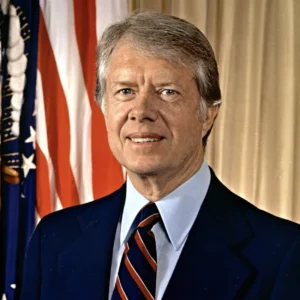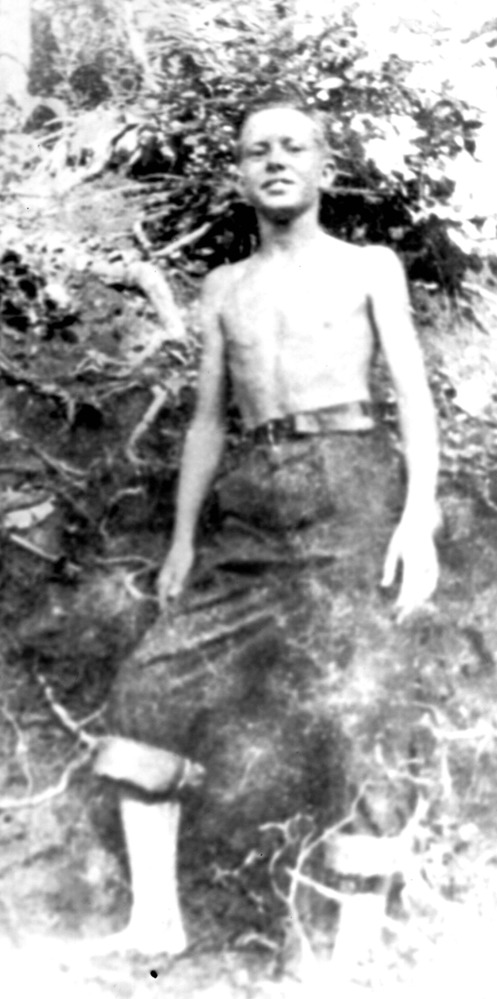A prolonged military conflict in the Middle East could potentially upend key commodity markets due to Iran’s control of the Strait of Hormuz, one of the world’s most important trade…
Jimmy Carter, Former Peanut Farmer and President, Dies
Agri-Pulse’s Philip Brasher reported Sunday that “Jimmy Carter, the former president and statesman who died Sunday at 100, was famously proud of being a peanut farmer and is being remembered for working to address food insecurity through modern farming practices and technology, and for giving time to help his old industry.”
Reuters’ Will Dunham reported that “Carter, a Democrat, became president in January 1977 after defeating incumbent Republican President Gerald Ford in the 1976 election. His one-term presidency was marked by the highs of the 1978 Camp David accords between Israel and Egypt, bringing some stability to the Middle East.”

“But it was also dogged by an economic recession, persistent unpopularity and the Iran hostage crisis that consumed his final 444 days in office. Carter ran for re-election in 1980 but was swept from office in a landslide as voters embraced Republican challenger Ronald Reagan, the former actor and California governor,” Dunham reported. “Carter lived longer than any U.S. president and, after leaving the White House, earned a reputation as a committed humanitarian. He was widely seen as a better former president than he was a president – a status he readily acknowledged.”
“Carter and the non-profit organization he founded, The Carter Center, later collaborated with fellow Nobel Peace Prize winner, scientist Norman Borlaug, to promote improved agricultural practices in Africa,” Brasher reported. “‘President Carter became a champion for ending hunger and poverty with his deep commitment to human rights and his post-presidency focus on global health and development. Their collaboration wasn’t just about science or politics but humanity,’ Borlaug’s granddaughter, Julie Borlaug, said in a statement shared with Agri-Pulse.”
“In a 2010 tribute to Borlaug, Carter said the crop breeder known as the father of the Green Revolution ‘defied conventional wisdom. He and I sometimes stood alone within the international agricultural development arena for our views on the need to help Africa improve its ability to produce food and the use of GMOs.’ Carter also used his name and time to help his old industry,” Brasher reported. “‘Through the years he was generous with his time, graciously meeting with many international trade delegations and sharing his knowledge about peanut farming and the industry. These gatherings always proved to be the highlight of the tours and a cherished memory for participants,’ the American Peanut Council said in a statement.”
Carter’s Farming Background
Successful Farming’s Lisa Foust Prater reported that “at age 4, Carter and his parents, Earl and Lillian Carter, moved to a 360-acre farm in Archery, Georgia, a small hamlet outside the city of Plains, southeast of Columbus. His father grew peanuts, cotton, sugarcane, and corn commercially with the help of tenant farmers, plus vegetables for the family. He also raised livestock and cured his own hams, pork shoulders, and sausage to sell.”
“Five-year-old Jimmy got his start in business selling boiled peanuts for a nickel a bag on the streets of Plains, according to the Jimmy Carter National Historical Park, part of the National Park Service (NPS). He would earn up to $1 a day, and up to $5 on Saturdays. At that time, three acres produced one ton of peanuts, which brought $60,” Foust Prater reported. “…As a boy, Carter had many chores on the farm, including hauling cotton to the gin and watermelons to the railroad. The chore he enjoyed the least, the NPS said, was mopping cotton. During the 1920s, cotton buds needed to be poisoned to kill boll weevils. Boys would carry a mixture of arsenic, molasses, and water up and down rows of cotton in a bucket, using a rag tied to the end of a stick to dab the poison onto the buds of each plant.”

“Carter served as secretary of the Plains High School FFA Chapter,” Foust Prater reported. “He is the only FFA member to be elected U.S. president. In 1977, he was presented with a lifetime membership plaque. In a speech at the National FFA Organization’s State Presidents’ Conference in 1979, Carter said about his role as FFA secretary, ‘I can vouch for the fact that it’s good preparation for the highest elective office in our nation.'”
Tributes Pour In
Foust Prater reported that “upon hearing of Carter’s death, Scott Stump, chief executive officer of the National FFA Organization, said: ‘We are deeply saddened by the passing of President Jimmy Carter. Carter lived out our FFA Motto, ‘Learning to Do, Doing to Learn, Earning to Live, Living to Serve,’ every day of his life. Our thoughts are with his family, and we are grateful for the example he set for FFA members and our next generation of leaders.'”
“House Agriculture Committee Chairman Glenn “GT” Thompson, R-Pa., also cited Carter’s farming background in a statement,” Brasher reported. “‘Jimmy Carter grew up on his family’s farm in Plains, Georgia—where he later became the owner and operator of the family business. His humble beginnings and deep roots in agriculture taught him the values that guided his tireless, decades-long career as a selfless public servant.'”
Today, America and the world lost an extraordinary leader, statesman and humanitarian. pic.twitter.com/Ki7Rhbent0
— President Biden (@POTUS) December 29, 2024
“National Farmers Union President Rob Larew said Carter’s ‘agricultural roots prepared him to serve this country with grace and compassion through a difficult time and continue his humanitarian efforts for the remainder of his life,'” Brasher reported. “‘The fact that a humble peanut farmer from Georgia can hold the highest office in this country is a testament to the strength and value of the voice of family farmers and ranchers everywhere. We send our condolences to the Carter family and join the rest of the nation in remembering this great man.‘”





